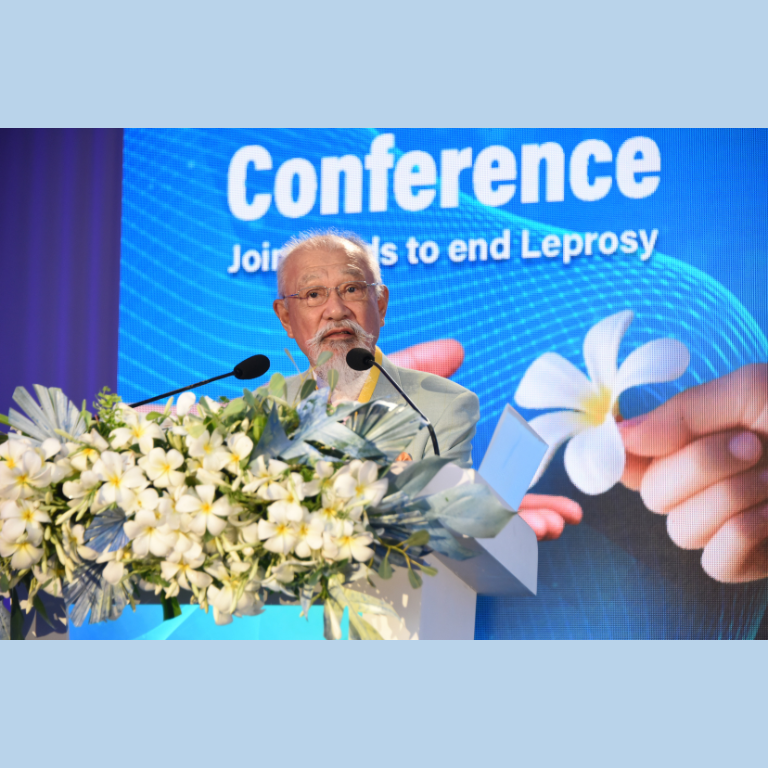World Leprosy Day has been observed annually on the last Sunday of January since 1954. The purpose of this day is to increase public awareness of leprosy (Hansen’s disease). This year, the date will be Jan. 30, and with this in mind, the Sasakawa Leprosy (Hansen’s Disease) Initiative has made January into a month for raising the profile and reach of its 10-month “Don’t forget leprosy” campaign.
Message posted on WHO website
A message from Yohei Sasakawa, WHO Goodwill Ambassador for Leprosy Elimination, has been posted to the World Health Organization’s website. The message emphasizes the importance of early detection and treatment, even amid the COVID-19 pandemic, and the need to confront stigma and discrimination.
Letters to health ministers
The Goodwill Ambassador wrote to health ministers and WHO representatives in 56 countries where leprosy is endemic to ask for their endorsement of the “Don’t forget leprosy” campaign. The many positive responses are encouraging. Country representatives can show their support publicly by posting on social media with the hashtags #DontForgetLeprosy and #DontForgetHansensDisease.
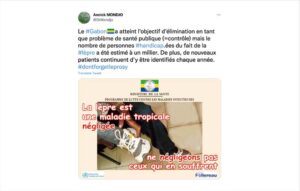
Grants for awareness-raising and surveys
In October 2021, the Sasakawa Health Foundation announced a “Don’t forget leprosy” grant program for two types of projects: 1) awareness-raising activities and 2) surveys of the situations of persons affected by leprosy and their families. Grants were awarded in December, and the project period started in January. More than 40 organizations — including NGOs, organizations of persons affected by leprosy, universities, research institutes, and medical associations — based in 16 countries received funding.
Of the 40 organizations that have received grants, 13 are in India, where around 60% of the world’s new cases of leprosy are diagnosed each year. Some of the awareness-raising activities being supported target school children and university students in the hope that discrimination can be eradicated if young people start their lives with accurate information about the disease.
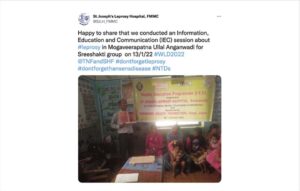
In Brazil, the country with the second-highest number of annual new cases, grants are supporting the awareness-raising work of more than 2,000 persons affected by leprosy and volunteers from Morhan (Movement for the Reintegration of Persons Affected by Hansen’s Disease). Activities include a focus on healthcare professionals and involve training local public health nurses, strengthening the functions of leprosy referral centers, and case-finding.
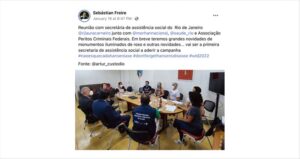



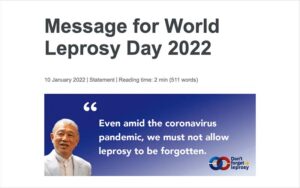
-2.png)

